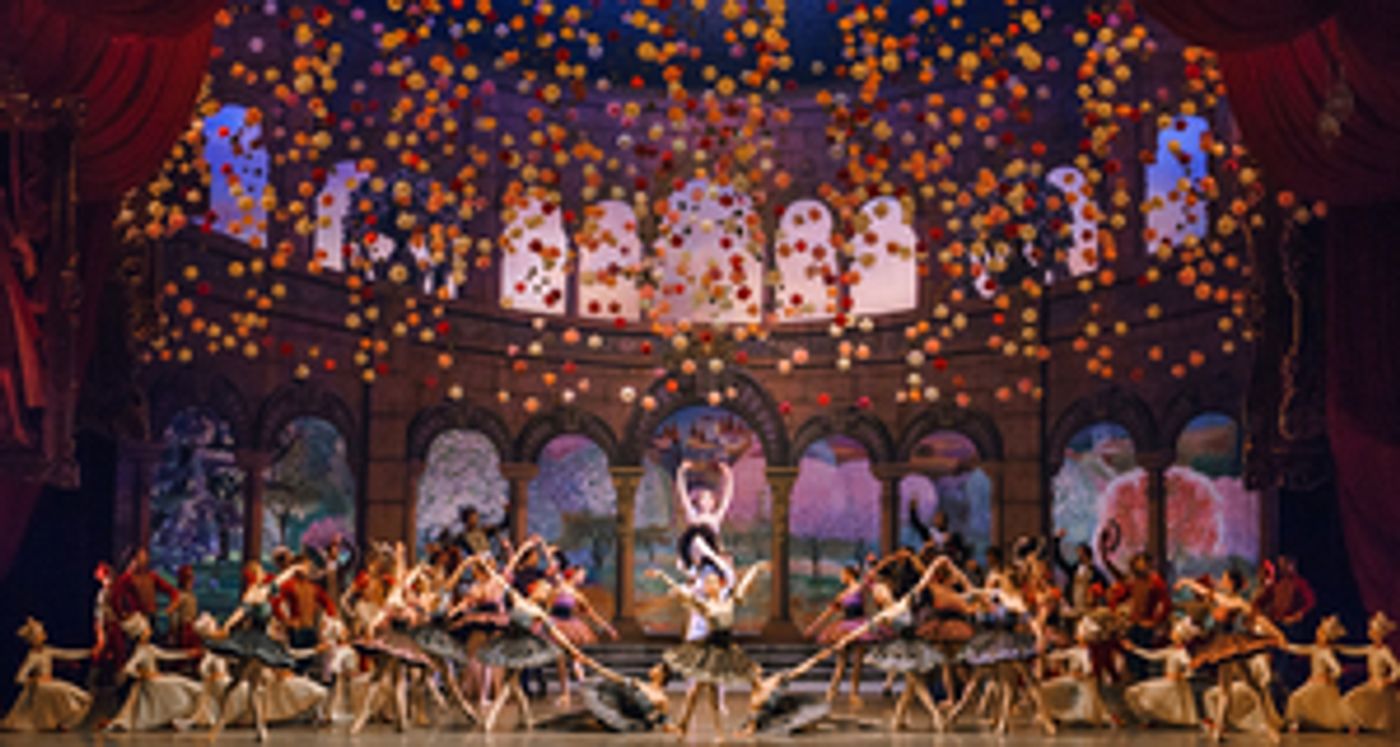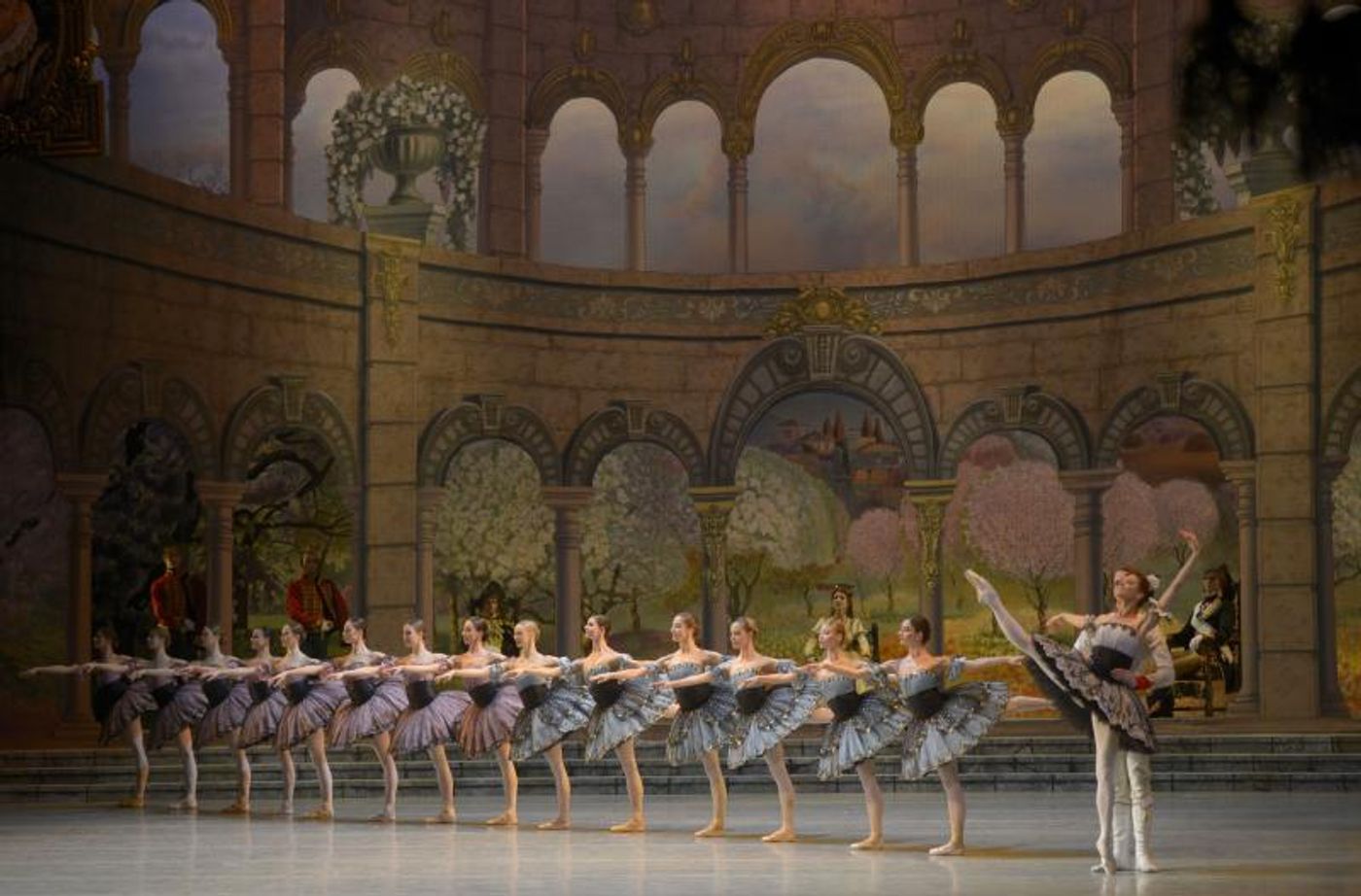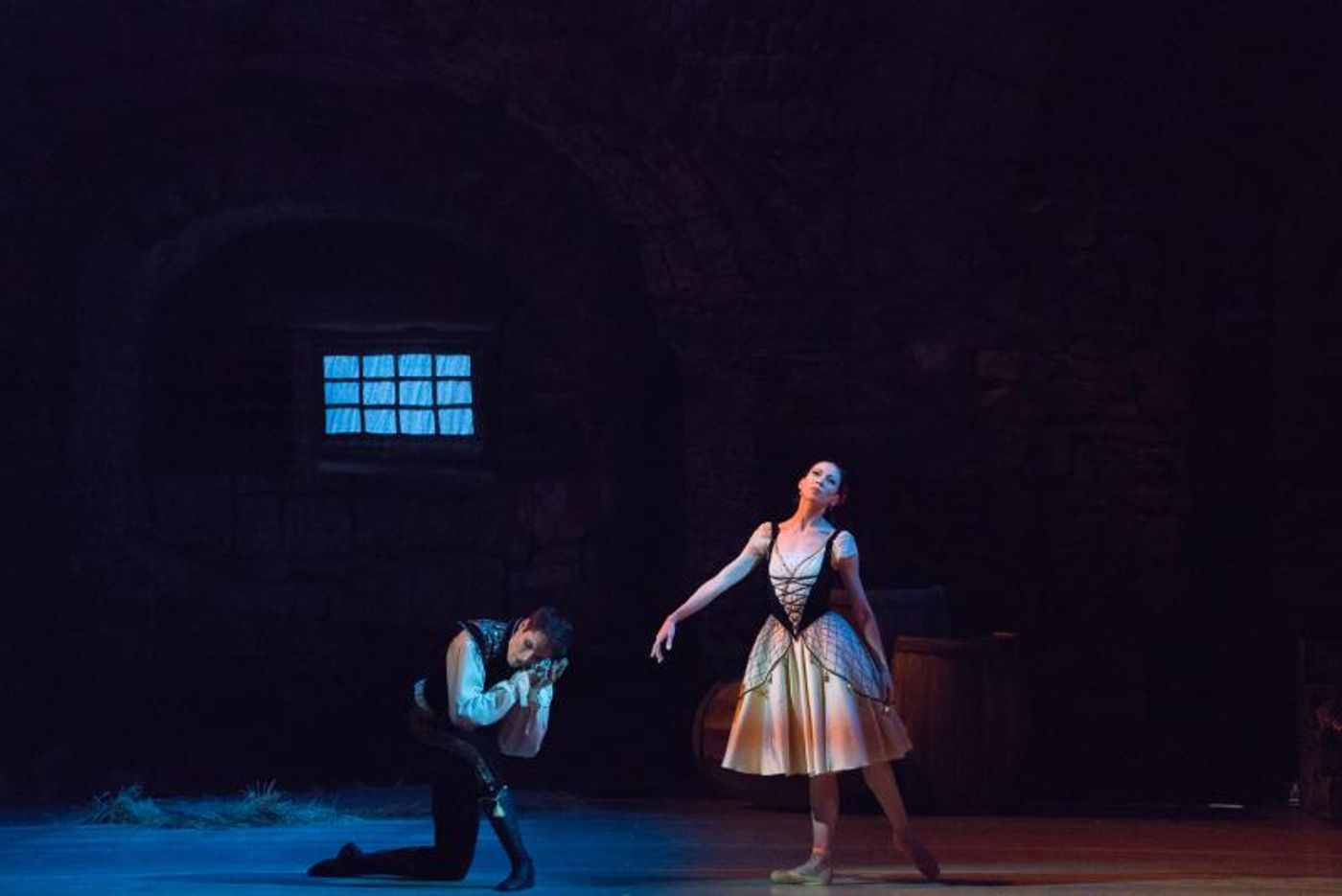Review: PAQUITA Should Begin at its End

The Mariinsky Ballet's "Paquita" should begin at its end.
It's culminating event, the infamous Grand Pas, arrives after roughly two hours and for anyone in the Kennedy Center Opera House who doesn't know it's coming, the temptation to leave at one of two interminable intermissions is hard to resist.
But for those who stay, the Grand Pas is so unfailingly regal that it feels like a reward. Choreographer Yuri Smekalovm, tasked with restaging this three-hour 19th century epic, maintains its idiosyncrasies (a turned in knee, an attitude lift) with dancers who value classical precision. Viktoria Tereshkina, as Paquita, does not show any fatigue as she executes a double fouette series in a stunning black and white tutu. Timur Askerov, as Andrés, finishes his last grand allegro with the same boyish joy he had when first introduced two hours ago.

Combatting audience fatigue, soloists Yekaterina Chebykina, Vlada Borodulina, Anastasia Nuikina, and Daria Ionova complete intricate variations of great stamina and grace. But the true majesty of the Grand Pas arrives with the Mariinsky's corps of student dancers. Perfectly in sync and no bigger than garden gnomes, these dancers shine in a character dance and waltz.
With its fairytale castle setting and glamorous costuming, the Grand Pas is where the Mariinsky is its most visually stunning. But the entire work is dedicated to creating striking aesthetics that transport audiences to a gypsy caravan, the countryside and even a jail cell. These sets, which include hanging portraits, a rolling wagon and dozens of tiny props, are well-handled save for an incident where the audience sits in silence, staring as portraits descend from the rafters.
While it may seem such elaborate sets would be a headache for the back of house, it's the dancers who grapple with them the most; hopping in and out of a rolling wagon, catching tiny velvet bags and tossing huge silver vases. When something is dropped, it's subtly kicked out of the way. When it makes more sense for the dancers to become the prop, they do. Such as when the dancers become a gallivanting horse or a forest of trees that subtly scoot along the length of the stage. This artistry and imagination play up the ballet's absurdity.

And absurd it is. To make any sense at all, this story of kidnapping, romance, revenge and mistaken identity requires feats of acting from its dancers. Thankfully Renata Shakirova's Carducha really appears the spurned lover. While Clemente, by David Zaleyev, evokes pity when rejected by Paquita. But it remains Askerov, whose Disney prince-demeanor, both brave and sensitive, really carries the love story.
The Mariinsky Ballet's long, but grand "Paquita" runs through Sunday, October 13.
Reader Reviews
Videos


